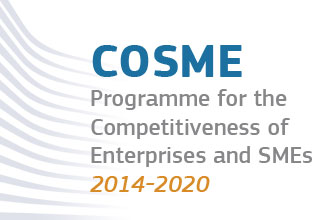 newsitems
newsitems  Bulgaria: People Vote + 51% Absolute Majority to the Right, only 40,8% to "Left"-Turkish groups
Bulgaria: People Vote + 51% Absolute Majority to the Right, only 40,8% to "Left"-Turkish groups
Bulgaria: People Vote + 51% Absolute Majority to the Right, only 40,8% to "Left"-Turkish groups
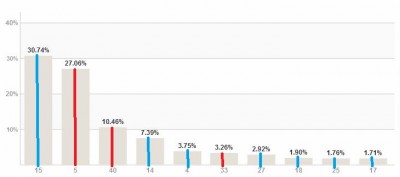
The Bulgarian People gave a crystal-clear preference to Center-Right parties in the crucial National Elections of this Sunday, which gather, all in all, a Total of Votes much Bigger than an Absolute Majority of some 51 % against only about 40,8 % to the "Left" side of the Political spectrum, where the former "Socialist" party is again obliged to deal with a smaller pro-Turkish grouplet, (while, on the contrary, at the Right side, in addition to the maintainance of traditional Rightist parties, apparently emerge even some New small but fast growing Movements).
After initially winning at the 2009 Elections, Borisov's GERB Party already won, at the end of 2011, also the Presidential Election with about 53% to 47% vis a vis the formerly governing "Socialist" party.
But, this time, the picture seems rather Complicated, and some last-minute "surprises" couldn't be excludedn even if they apparently should be of Minor nature, since the overall Popular preference for the Center-Right looks unquestionably much Stronger, (while the Participation reached a Majority of about + 51,5 % until 9 p.m.).
In particular :
Bulgarian Election: Center Right (GERB + Attaka) wins about 40% , while even a new Rightist Party (of "National Liberation") would reportedly be close to the threshhold allowing to enter the Parliament for the 1st time, against only 36,4% for the Socialo-Turkish parties of the outgoing opposition, which had previously governed the country for a long time, until it fell into the 2009 Economic Crisis and Corruption scandals.
GERB Party comes clearly First with more than 31 %, while "Socialists" have only 27 %/, with probably some 98 against 75 MPs each.
"Attaka"s Nationalists and the "Turkish" Minority party would result at about 7,5 % to 9,7 % or so, taking some 23 and 33 MPs respectively.
The New Rightist party NLB (which currently stands at about 3,8 %, i.e. close to the 4% threshhold) might hold a key to further developments, if its entry to the Parliament is confirmed, according to observers, while the "Left" apparently expects from last-minute .... "votes coming from Turkey" (sic !) to eventually alter this overall results...
As things stand until now, a possible formula might reportedly be for GERB (which means "Citizens for European Development") to form a Minoriyu Government with a deal for support by Attaka (and/or , eventually of the New Rightist Paty NLB) in the Parliament, (i.e. a kind of former "Dutch formula").
On the contrary, observers admit that it would be impossible for Attaka to stick to the Socialo-Turkish parties, mainly because it's notoriously Critic vis a vis Turkey's controversial policies.
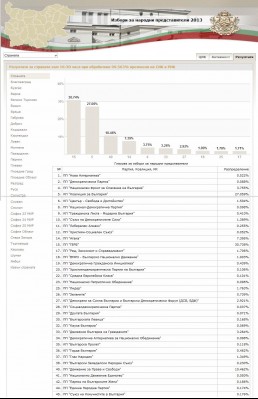
But another serious problem is also the Astonishing fact that more almost 25%, i.e. 1 out of 4 Votes casted risk to stay without any Representation in the Parliament, because until now the official results don't give more than 4% (the rather High Threshhold for getting elected MPs) to anyone among the numerous New or old Other Parties to which many Bulgarian Citizens have Dispersed their votes..
However, a Detailed and concrete Analysis of all currently available results, (reportedly representing some 99,6% of the Total of Votes), clearly reveals that Most of those Dispersed Votes point towards Center Right up to Rightist new or old small Parties, resulting in an overall overwhelming Popular aspiration to have a new kind of Government at the Right side of the Political spectrum :
Thus, f.ex. the GERB and Attak groups could logically attract also the New "National Salvation" party, as well as the "Bulgarian National movement", the "Leader" party, and the "Order, Law and Justice" party, resulting in more than the Absolute Majority of valid Votes casted : + 50,17 %
(i.e. : 31% + 7,5% + 3,8 % + 2,92% + 1,9% + 1,76% + 1,71% +...). In fact, such a Majority of the Center-Right seems to be even Bigger than that, considering also some + 2% of more Votes casted for the "ChristianDemocratic" party, "Strong" and/or "Proud Bulgaria" a.o. small Nationalist parties, etc.
At the "Left" side, the former "Socialist" Party is obviously obliged to stick again with the Turkish lobby, and could attract Ms Kouneva's small "Movement of Bulgarian Citizens" party which didn't get any MP, arriving at less than 41 % only, (i.e. 27,6% + 10% + 3,26 % = 40,86 %, ...etc).
Perhaps it might, eventually, be joined also by a few other, even smaller, non-represented parties, such as the "Greens", or "New Alternative", etc., which have hardly more than 1 % only.
The still remaining, Tiny, non-represented parties, who don't seem to have any clear political stance on the Left/Right Divide of the Political spectrum, (such as "Center", "Vox Populi", etc), don't represent but Negligeable variations of less than 2% or so, all in all, which obviously can't change the overall, general orientation, given the fact that the Total Difference between "Left" and "Right", as we already saw above, remains apparently more than + 10 % in favor of the Center-Right parties, led by Frontrunner GERB.
But, curiously, Final Results, (i.e. beyond the 99,6% already counted until today), are reportedly due for much Later this week, "on Thursday"...
---
(Sources : Central Electoral Commission of Bulgaria, National, Foreign and International Press Agencies, Wikipedia, etc).
-----
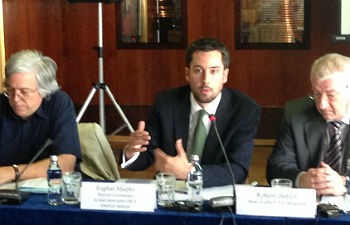
Meanwhile, COE/OSCE Official Conclusions on the way that the Bulgarian Elections were organzed in practice, clearly appear mainly Positive :
In an official CoE Statement published later Today in Strasbourg, the competent Delegation of the PanEuropean Organisation for Human Rights, Democracy and Rule of Law, send by its Parliamentary Assembly to observe facts on the spot in cooperation with OSCE, and headed during the Vote by experienced Swiss MEP Andreas Gross (President of the Socialist Group), gave a "Green" Light to Sunday's Bulgarian Elections' process, by stressing in conclusion that they were "Competitive and Well run".
- In particular, "fundamental Freedoms were respected, and the Administration of elections was well Managed". "The Campaign was Competitive and generally free of violence, and the caretaker government undertook several measures to hold Genuine elections". “Voters had a genuine Choice ....and the (Bulgarian) Authorities made real steps to uphold the Integrity of the election", so that "we have seen here ... Genuine efforts at holding democratic elections".
- The process was Well-administered by the Central Election Commission (CEC), which generally worked in an Open manner", while "the posting of CEC sessions on the Internet was a Welcome Transparency measure" In addition, the "Election day took place in a Calm and orderly manner, with polling station Openings and Voting mostly assessed Positively... Tabulation, overall, was positive. The large Number of proxies and Observers present enhanced Transparency".
- Earlier, "the Media landscape during the campaign was Pluralistic", while "Public broadcasters and some private media granted contestants Free airtime on popular election-related programmes".
Finally, "the Legal framework for the elections generally provides a Sound basis ....when implemented properly", and several "Rrecommendations made by the OSCE... and the CoE were Adopted in recent amendments to the Electoral Code", they noted.
---------------------------------------------
- However, several People's "Trust in process is lacking", CoE/OSCE Observers noted among some Critical Remarks on particular points :
F.ex., "pervasive Allegations of vote-buying" "affected Negatively the campaign environment", while, earlier, it "was overshadowed by a number of Incidents" :
Thus, "public Confidence in the process" was "weakened" by "Cases of Pre-election wiretapping and Concerns over last-minute incidents related to ballot security". While "the campaign was, at times, negative, with some parties using Inflammatory and xenophobic rhetoric", observers found.
- "Eoghan Murphy, the Special Co-ordinator who led the Short-term OSCE observer mission", reportedly said that "scandals (?) and the recent discovery of additional ballot papers without proper explanation, Undermined people’s Faith in the political system and, more worryingly, made Them Question the process itself". “When you look at the misTrust that exists between political parties, and at the current economic difficulties, this is a negative development.”
- Precisely, “All those who have been Elected have to address" the fact that “Lack of public Confidence in the electoral process, and the alienation of too many Bulgarians from their public institutions; remains a matter of concern,” said Andreas Gross, the head of the delegation from CoE's Assembly, (which appeared, generally, rather more satisfied than OSCE, but pointed at the need "to overcome the social and political crisis with which the Bulgarian people are confronted").
F. ex., to "improve Transparency", the CEC should be "providing more Information on the times of all of its Sessions, and the Basis for its Decisions", using also ""Legal provisions on campaign Financing", while "there were some concerns expressed about the independence of Lower election commissions", since "the Counting of ballots was more Problematic in a number of cases", observers noted.
Meanwhile, "Media ownership lacks transparency" : F.ex. "a significant share of the campaign information had to be Paid for, creating a playing field for candidates that was Not level and Limiting the public media’s role in providing voters with a broad range of information. Paid campaign information was not always clearly labelled as such, potentially Misleading voters about the sources of election-related messages".
So that, "in order to restore the Trust of Bulgarian citizens, ... the cycle of Impunity must be broken" on some "serious violations during this campaign", which "have to be thoroughly Investigated and those responsible prosecuted,” reportedly added Miklós Haraszti, the Head of the OSCE/ODIHR Long-term election observation mission.
=> In conclusion, the Head of the OSCE Parliamentary Assembly delegation, Roberto Battelli, reminded, as a matter of General Principle, that : - "In many Countries we see systematic attacks on the credibility of the democratic institution of elections", while, in fact, "it is only through Democratic institutions that social, Economic and Political Changes can be addressed effectively
***
(NDLR : "DraftNews", as already sent, earlier, to "EuroFora"s Subscribers/Donors. A more accurate, full Final Version might be published asap).
***
Main Menu
Inicio Press Deontology/Ethics 2009 Innovation Year EU endorses EuroFora's idea Multi-Lingual FORUM Subscribers/Donors Preguntas más frecuentes Licencia de Elxis Noticias externas Búsqueda avanzada EuroFora supports Seabird newsitems In Brief European Headquarters' MAPs CoE Journalists Protection PlatformBRIEF NEWS
- 00:00 - 02.06.2021
- 00:00 - 18.10.2020
- 00:00 - 19.06.2020
- 00:00 - 18.05.2020
- 00:00 - 20.04.2020
- 00:00 - 02.02.2020
- 00:00 - 09.12.2019
- 00:00 - 27.11.2019
- 00:00 - 16.11.2019
Popular
- Yes, we could have prevented Ferguson riots says World Democracy Forum's Young American NGO to ERFRA
- Spanish People Elect CenterRIGHT Majority with 1st Party and Total of 178 MPs (6 More than the Left)
- Pflimlin's vision
- The European Athletic "Dream Team", after Barcelona 2010 Sport Championship Results
- Source Conseil d'Europe à ERFRA: Debatre Liberté d'Opposants à Loi livrant Mariage+Enfants à Homos ?
- Head of BioEthics InterGroup, MEP Peter Liese : "Embryonic stem cell research reaching its END" !?
- Spain: Jailed Turkish Terror suspect with Explosive,Drones,Chechen accomplices stirs Merah+ Burgas ?
- UN Head Ban Ki Moon at CoE World Democracy Forum : - "Listen to the People !"
Latest News
- Test Photos (f.ex.+ Invit to EU + Korea Peace meeting)
- EUOmbudsmen Conference 2022: Digital Gaps affect People's Trust threaten EF Project on EU Future ?
- French Election : Black Out on Virus, but Obligation for Fake 'Vaccines" Challenged
- Both French Presidential Candidates point at "Humanism" in crucial times...
- France : Zemmour = Outsider may become Game Changer in Presidential + Parliamentary Elections 2022
Statistics
Visitantes: 60276667Archive
Login Form
Other Menu
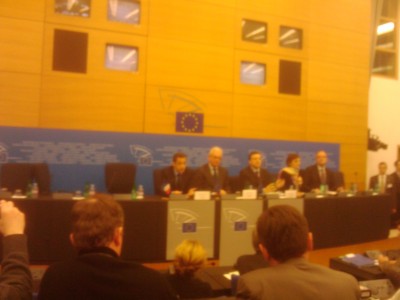
Recent developments proved that Europe can suceed to overcome challenges by aiming at great objectives, and this is needed also in 2009, said EU chairman, French President Nicolas Sarkozy.
- "It's in the name of Great Ideas, Projects, Ambition and Ideals, that EU can overcome" challenges, stressed Sarkozy at EU Parliament in Strasbourg, in conclusion of a dense 7 months EU Chairmanship. "It's even easier for Europe to have Great projects, able to overcome national egoism, instead of limiting itself only to small projects" (unable to do alike), he observed.
- "Europe must remain Ambitious and understand that the World needs her to take Decisions". "The World needs a Strong Europe", which "thinks on its own, has convictions, its own responses, its imagination" : "A Europe which does not limit itself into following" others, (as it did in the Past, when it followed USA, f.ex. on Bosnia). On the contrary, "Europe should undertake its own responsibilities", he said, after a series of succes in stopping the War between Russia and Georgia, and organizing the 1st EuroZone's Summit in Paris, which incited the Washington DC G-20 Summit to extend similar decisions World-wide.
- "When you sweep it all under the carpet, prepare yourself for hard tomorrows", he warned. "What hinders decisions is the lack of Courage and Will, the fading away of Ideals", he stressed before EU Parliament's 2008 debate on Human Rights and Sakharov prize on Freedom of thought attributed by MEPs to Chinese cyber-dissident Hu Jia, followed by an EU - Turkey meeting on Friday.
- "I don't abandon my convictions" and "I will take initiatives" on EU level also in 2009, Sarkozy announced later. "France will not stop having convictions and taking initiatives" on Europe. + "It's an Error to wish to pass over the Heads of those who are elected in their Countries" : "It's an integrism I always fought against"', he warned.
---------------------
French EU Presidency faced 4 unexpected Crisis :
- An institutional crisis, with the Irish "No" to EU Lisbon Treaty, just before it started. A geopolitical crisis, wth the threat of War between Russia and Georgia risking to throw Europe back to Cold-war divisions, on August. A World-wide Financial and Economic crisis, arriving at a bad moment before crucial 2009 EU elections. And even a Strasbourg's mini-crisis, with EU Parliament's roof curiously falling down, from unknown reasons, in a brand new building on August, provoking an unprecedented transfert of the 2 September Plenary Sessions...
But it wasn't enough to stop Sarkozy ! On the contrary, it stimulated him...
---------------------------------------
- "The better way to deal with the recent problems of EU institutions (as the "3 NO" by France, the Netherlands and Ireland) is to take them as a "Test" in order to find solutions closer to Citizens' concerns", said later in Strasbourg Sarkozy's new choice as Ministe for EU affairs, Bruno Le Maire.
- On the Institutional front, Sarkozy gave Time to the Irish to think about it, and stroke on December a deal including a New Referendum after the June 2009 EU Elections, in exchange of a promise to keep the rule of "one EU Commissioner for each EU Member Country", and some opt-outs on Defence and Fiscal EU policies, Abortion, etc. If the Irish get a "Yes" Majority, then the institutional package could be completed in 2010 or 2011 on the occasion of Croatia's probable EU accession.
He was accused in Strasbourg to upgrade EU Council and downgrade EU Commision, but he replied that "strong Political initiatives by EU Council reinforce also the more technical role of EU Commission, under the political-technical leadership of its President", all 3 "working together with EU Parliament".
- But, meanwhile, Sarkozy energetically spearheaded an Historic 1st Summit of EuroZone's 15 Heads of State and Government at EU's core, exceptionally enlarged to a partial participation of British Prime Minister Gordon Brown, on October 12 in Paris' Elysee palace, which started to tackle succesfully the growing world Financial crisis.
It also paved the way for its endorsement by a subsequent Brussels' 27 EU Member States' gathering, before it all come to Washington's G-20 Summit. And "Europe was united, it asked for the 1st G-20 Summit, and it will also organise the next G-20 Summit on April in London", he observed.
But a Conference with EU, Russia, African and other Developing Countries, hosted in Strasbourg shortly after Washington G-20 Summit by the French EU Presidency, took a Resolution asking to enlarge participation to Global Economic Governance. Many found, indeed, illogic and unacceptable that f.ex. states as Turkey were given a seat at G-20 level, while all African Countries, and even the African Union itself, representing the greatest Continent on Earth, were excluded...
Meanwhile, even USA''s "Paulson No 3" Plan, was, in fact, inspired by Europe's No 1 Plan", Sarkozy observed, largelly applauded by MEPs.
And "Europe showed Solidarity" by mobilizing some 22 Billion credit for Hungary, 1,7 billion for Ukraine, as we do nowadays for Baltic States, etc., he added.
The move on Economy was extended on December by an EU stimulus' plan totalling some 200 billion Euros, including 5 Billions released by EU Commission for big Projects, as well as various parallel National plans for Economic revival, (fex. 26 billions in France alone). They might appear limited, compared to USA President-elect Obama's reported plan to boost the American economy with 800 billion $, but at least succeded to overcome Europe's divisions for the first time on Economic governance, opening new horizons.
- The French President stressed even harder the unique role of an active EU Council's chairmanship, when he moved swiftly and efficiently, at the beginning of August, to succesfully stop War between Russia and Georgia, at the last minute, which threatened to bring Europe back to Cold War division.
"We (EU) also wanted to avoid a situation like in Bosnia, in the Past, when EU was absent, so that our American friends took their responsibilitues, and EU only followed", despite the fact that the conflict took place in Europe. Now, it was the EU who took its responsibilities".
A roadmap towards a new PanEuropean Security policy, before which all unilateral moves to place new Missiles (from USA or Russia) would be freezed, was proposed by Sarkozy after a meeting with Russian president Medvedev, at the eve of Washington DC's G-20 Summit.
Ukraine's "European" character was stressed at a Sarkozy - Jushenko Summit, September in Paris, while EU adopted on December an "Eastern policy", in which, "I'm convinced that our (EU's) future is to find with our Neighbours the conditions for Economic Development. Peace and Security, by explaining them that.. they must respect (Human Rights') Values, and adopt behaviors different from the Past", explained Sarkozy in Strasbourg.
Meanwhile, the "Union for the Mediterranean" was created, since July's Summit if 45 Heads of State and Government in Paris, as "an organisation for a permanent Dialogue, that we need", mainly in order to tackle the Israeli-Palestinian conflict, by bringing together, for the 1st time, Israelis and Arabs, where "Europe must be present, in order to avoid a frontal clash".
- "If Europe doesn't take its part for Peace in the Middle-East, nobody else will do that in our place", Sarkozy stressed.
-----------------------
Meanwhile, other EU Agreements were brokered during the French EU Presidency on Immigration, (fex. common Asylum rules, etc), and Climat- Energy :
- On Climat-Energy, the 2007 German EU Presidency had fixed a triple 20% aim for 2020 (20% renewable Energies, 20% reduction of CO2 emmission, 20% energy efficience/economies), and the 2008 French EU Presidecny realized that, making the necessary compromises in order to modernize EU's industry, but without throwing some former Central-Eastern European Countries into abrupt Economic break down risking "social explosion".
- Defence-Security EU policy was mainly postponed for April 2009, since both German chancellor Merkel and French president Sarkozy want to strike a deal with the new American president Obama in Strasbourg's NATO Summit.
However, with all these 4 unexpected Crisis diverting attention to other urgencies, People wil wonder now, what happened to the famous deal proposed by freshly-elected French President Sarkozy on Turkey's controversial EU bid, back on August 2007, to continue EU - Turkey negotiations, but on the double condition that core chapters, intrinsequally linked with EU Membership, will be excluded, and that a collective Reflexion and Debate on Europe's future would start before the end of 2008.
It was meant to reply to the crucial question : What kind of Europe do we want in 10 or 20 Years from now : A large Market, or a Political Europe, with a popular identity ? In Sarkozy's thinking, presented in his 2 landmark speeches on Europe in Strasbourg, shortly before and after the 2007 Elections, (on February and July 2007), Turkey's controversial EU bid would be incompatible with the second choice.
It's true that EU Commision's Chairman, Jose Barroso, (who had notoriously declared, as former Portuguese Prime Minister, that he found "nonsense" the idea that Europe might become equal to the US), had repeatedly tried to avoid that Sarkozy's criticism on Turkey might start winning a larger audience in Europe, preferring a discrete "wismens' committee" work. And that most of the personalities later chosen in order to participate in a Committee on Europe's Future, are too much linked with Socialist parties and/or American policies, to be really critical of USA's notorious wish to impose Turkey to the EU, as Sarkozy had noted himself since March 2007..
- "It's on EU Council's presidency to take political initiatives. EU Commission has other competences", stressed Sarkozy. The "European Ideal" is to "build Europe with the States, not against them". "Ask Europeans to chose between their countries and Europe won't work. You don't choose between your two parents : We must add them together".
"France and Germany have an Historic Duty to work together, precisely because of what happened to the Past. We have to work hand by hand. We cannot be separated.It goes beyond me and Mrs Merkel today, Mr Schroeder and Mr. Chirac yesterday. It's not a choice, it's a duty to Europe and to the World". "We need Germany, as Germany needs Europe". Compromise is inevitable, here as everywhere, and each one made some steps towards eachother's positions.
But "it's true that Mrs Merkel didn't chose her Socialist partners, while I chose mine", Sarkozy said, in an indirect hint that the Socialist Minister of Finance in Germany might be a cause of minor past disagreements in Economy, which were overcome in recent negotiations.
"We (France and Germany) have particular duties in Europe", but "in a Europe of 27 Member States, it's not enough for France and Germany to agree between them.
"I always thought that Great Britain has a special role to play in Europe. ... Now, everybody "saw what it cost payed the UK for having been too exclusively open towards the US (and) Financial services. Europe needs the UK, but also the UK needs Europe" :- "We were able to face the hardest moment of the Financial crisis because the UK clearly chose Europe", stressed Sarkozy, reminding Gordon Brown's exceptional participation to the Historic 1st Heads of State/Government Summit of EuroZone, October 12 in Paris (See EuroFora's Reportage from Elysee Palace then).
- "Some look at Europe with old glasses aged 30 years ago. While we must look at her in relation to what it will be in 30 years" in the Future, Sarkozy concluded.













